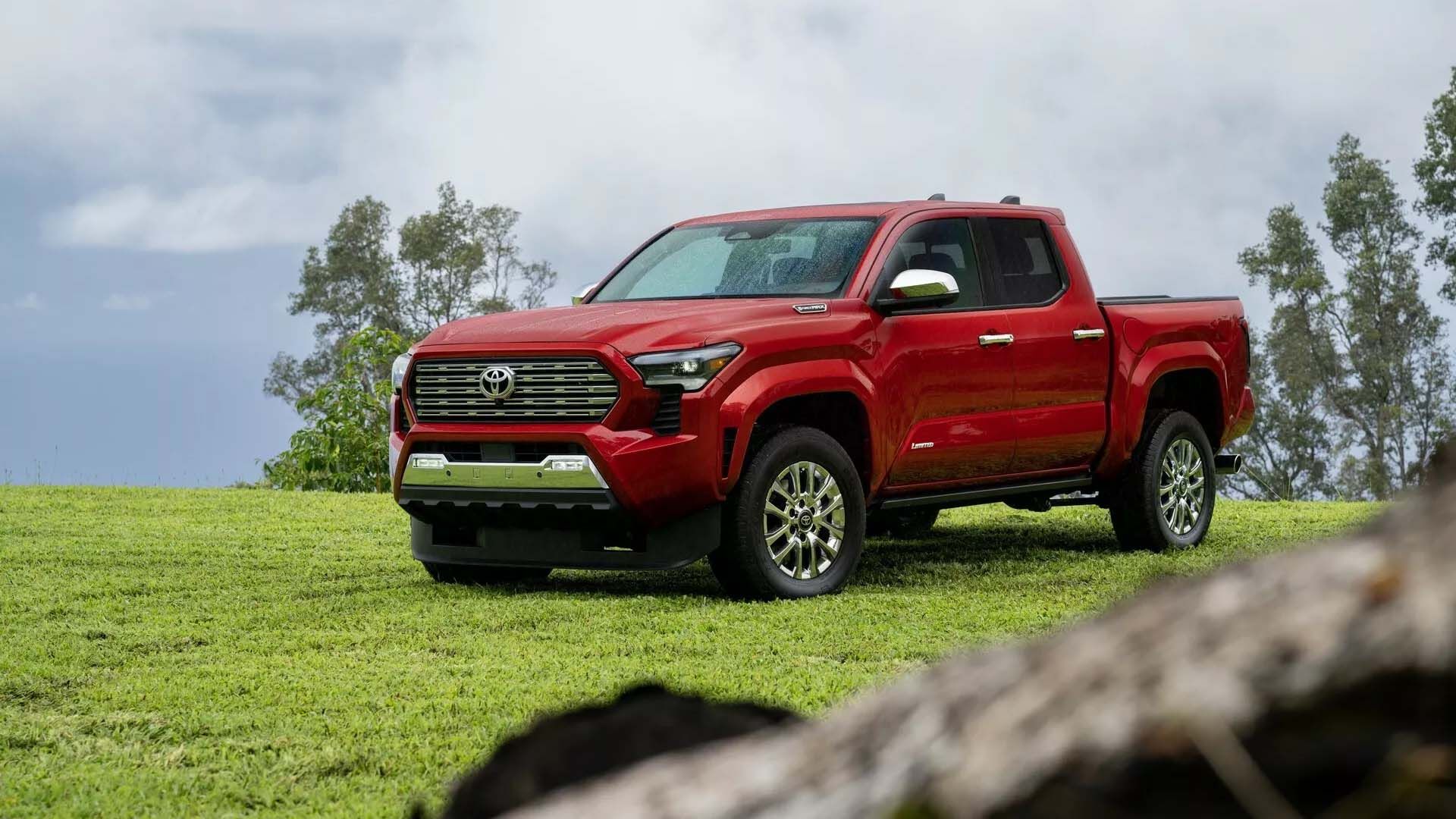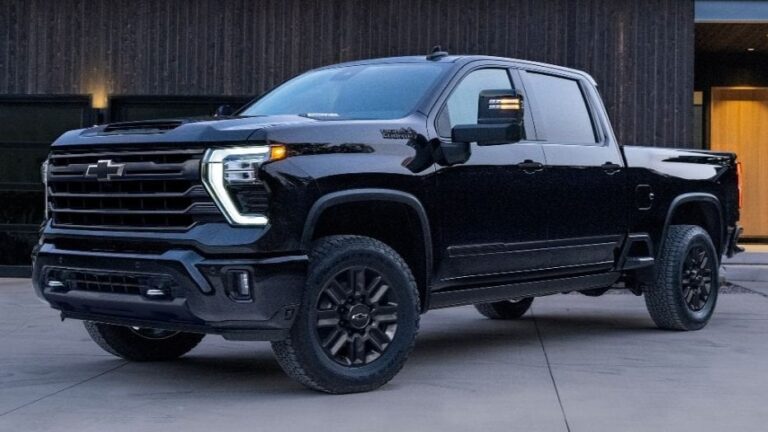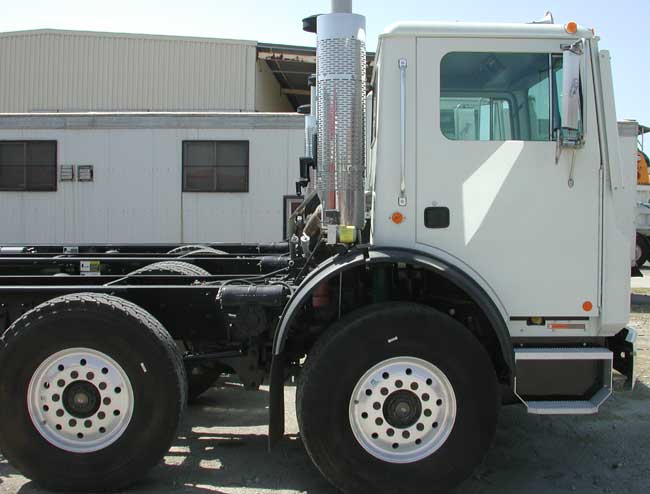Ranch Trucks For Sale Near Me: Your Comprehensive Guide to Finding the Perfect Workhorse
Ranch Trucks For Sale Near Me: Your Comprehensive Guide to Finding the Perfect Workhorse cars.truckstrend.com
For anyone living the rural lifestyle, managing a farm, or maintaining a sprawling property, a truck isn’t just a vehicle; it’s an indispensable partner. But not just any truck will do. We’re talking about a "ranch truck" – a robust, reliable, and often rugged machine specifically equipped to handle the demanding tasks of agricultural work, off-road conditions, and heavy hauling. Finding the right ranch truck for sale "near me" is more than a convenience; it’s about being able to inspect the vehicle, understand its history in a local context, and ensure it meets the unique demands of your land and operations. This guide will walk you through everything you need to know about locating, evaluating, and purchasing the ideal ranch truck that’s ready to work as hard as you do.
What Defines a True Ranch Truck?
Ranch Trucks For Sale Near Me: Your Comprehensive Guide to Finding the Perfect Workhorse
A ranch truck stands apart from a standard pickup. While it shares the fundamental platform, its DNA is geared towards utility, durability, and resilience rather than just daily commuting or city driving. Here are the defining characteristics:
- Robust Drivetrain: A heavy-duty 4×4 system is almost non-negotiable. Ranch work often involves traversing uneven terrain, muddy fields, and steep inclines, making reliable traction essential. Look for models with low-range gearing and possibly locking differentials.
- Towing and Hauling Capacity: Ranch trucks are built to pull horse trailers, livestock trailers, hay bales, and heavy equipment. This means a strong frame, a powerful engine (often diesel for torque), a robust transmission, and a factory or aftermarket tow package. Pay attention to Gross Vehicle Weight Rating (GVWR) and Gross Combined Weight Rating (GCWR).
- Practical Bed Configuration: While standard beds are common, many ranch trucks feature flatbeds for easier loading of irregular items, gooseneck hitches, or specialized utility bodies with integrated toolboxes and compartments.
- Durability and Simplicity: Creature comforts often take a backseat to sheer toughness. Interiors might be more utilitarian, designed to withstand dirt, mud, and heavy use. Exterior features like heavy-duty bumpers, brush guards, and skid plates offer protection in rugged environments.
- Ground Clearance and Suspension: Adequate ground clearance is crucial for navigating rocky paths or deep ruts. Heavy-duty suspension components are designed to handle constant loads and rough roads without compromise.
- Work-Ready Features: Winches, auxiliary lighting, upgraded tires (all-terrain or mud-terrain), and even integrated air compressors can be common additions that make a ranch truck more effective.

In essence, a ranch truck is a tool, not a toy. Its value is measured in its capability and reliability under demanding conditions.
The Importance of "Near Me" When Buying a Ranch Truck
While online listings offer a vast selection, focusing your search on "Ranch Trucks For Sale Near Me" provides significant advantages:
- Physical Inspection: You can physically examine the truck, assessing its true condition, checking for rust (especially important in certain climates), signs of abuse, and overall wear and tear. Photos can be deceiving.
- Test Drive on Relevant Terrain: A quick spin around a city block won’t tell you much about a ranch truck. Being "near me" allows you to test drive it on roads or even light off-road paths similar to what you’ll encounter on your property. Engage the 4×4, test the brakes, and listen for unusual noises.
- Local Context and History: A truck that has spent its life on a local ranch might have a known history within the community. Local mechanics might even be familiar with its past.
- Reduced Logistics: Avoiding long-distance travel for viewing and purchasing saves time and money. Transporting a large truck from a distant location can be costly and complicated.
- Local Support: Buying locally can make post-purchase support easier, whether it’s for warranty claims (on newer vehicles), parts, or servicing from a dealership or mechanic you’ve already identified.


Key Considerations When Choosing Your Ranch Truck
Selecting the right ranch truck requires careful thought about your specific needs and budget.
1. Budget: New vs. Used
- New Ranch Trucks: Offer the latest technology, warranties, and customization options. They come at a premium price but provide peace of mind regarding reliability and maintenance.
- Used Ranch Trucks: Represent significant savings and often offer excellent value, especially if well-maintained. Many older, high-mileage trucks can still be incredibly robust workhorses. The key is thorough inspection and understanding maintenance history.
2. Intended Use: Tailoring the Truck to the Task
- Light Duty (Half-Ton): Trucks like the Ford F-150, Ram 1500, or Chevy Silverado 1500 can handle lighter tasks like hauling feed, small trailers, or basic property maintenance. Good for smaller acreages.
- Medium Duty (Three-Quarter Ton): F-250/350, Ram 2500/3500, Silverado/Sierra 2500/3500. These are the sweet spot for many ranches, offering significantly increased towing and payload capacities for livestock trailers, larger equipment, and heavier loads.
- Heavy Duty (One-Ton Dually): For very large trailers, heavy machinery, or commercial hauling, a dually (dual rear wheels) offers maximum stability and payload.
Consider what you’ll primarily be hauling (weight and dimensions), how often you’ll be off-road, and what kind of terrain you’ll encounter.
3. Engine Type: Gas vs. Diesel
- Gasoline Engines: Generally less expensive to purchase and maintain, quieter, and perform well in colder climates. Ideal for lighter loads, shorter hauls, and less frequent heavy towing.
- Diesel Engines: Offer superior torque for heavy towing, better fuel economy when under load, and often longer lifespans. They are more expensive to buy and maintain, especially with modern emissions systems, but are the preferred choice for constant heavy work.
4. Drivetrain and Axles
- 4×4: As mentioned, essential for navigating challenging terrain. Ensure the 4×4 system engages smoothly and effectively during your test drive.
- Axle Ratios: Higher (numerically larger) axle ratios provide more torque for towing but sacrifice fuel economy. Lower ratios are better for highway cruising. Match the ratio to your primary use.
- Locking Differentials: Can provide additional traction in extremely slippery or uneven conditions.
5. Cab and Bed Configuration
- Regular Cab: Two doors, maximum bed length for the truck’s overall size. Good for single operators.
- Extended/Quad Cab: Extra space behind the front seats, sometimes with small rear doors. Good for occasional passengers or secure storage.
- Crew Cab: Four full-sized doors, ample rear seating. Ideal if you regularly transport a crew or family.
- Bed Length: Long beds (8 ft) are common for ranching due to their capacity for lumber, fencing, and equipment. Short beds (5.5-6.5 ft) are more maneuverable but less versatile.
- Flatbed vs. Traditional Bed: Flatbeds offer superior versatility for loading large, irregularly shaped items and often come with integrated toolboxes or gooseneck hitches.
6. Condition and Maintenance History (Especially for Used Trucks)
- Rust: Inspect the frame, bed, wheel wells, and rocker panels thoroughly. Rust can compromise structural integrity.
- Engine & Transmission: Check for leaks, strange noises, smooth shifting (automatic) or clutch engagement (manual). A pre-purchase inspection by a trusted mechanic is highly recommended.
- Suspension & Tires: Worn suspension components can lead to poor handling and excessive tire wear. Ensure tires have good tread and are appropriate for off-road use.
- Electrical System: Test all lights, wipers, HVAC, and any aftermarket accessories.
- Maintenance Records: Ask for detailed service records. A well-documented history is a strong indicator of a cared-for vehicle.
Where to Find Ranch Trucks For Sale Near Me
Your search for the perfect ranch truck can take you to several places, both online and in person:
- Local Dealerships (New & Used): Many dealerships, especially in rural areas, understand the needs of ranchers and farmers. They often have dedicated heavy-duty truck sections and may even stock trucks with specific work packages.
- Online Marketplaces with Local Filters:
- AutoTrader.com, Cars.com: Excellent for broad searches, allowing you to filter by location, make, model, year, and specific features.
- Craigslist, Facebook Marketplace: Great for private party sales. You can often find well-priced trucks directly from other ranchers or farmers. Be cautious and always meet in a safe, public place.
- eBay Motors: Similar to AutoTrader, but also features auctions.
- Farm & Ranch Equipment Dealers: Dealers selling tractors, trailers, and other agricultural equipment often take work trucks as trade-ins. These trucks are usually well-suited for ranch work.
- Local Auctions: Farm auctions, government surplus auctions, and general vehicle auctions can be treasure troves for finding work trucks. However, they typically offer vehicles "as-is," requiring a keen eye for inspection.
- Word-of-Mouth & Local Classifieds: Don’t underestimate the power of local networks. Ask around at feed stores, co-ops, community centers, or check local newspapers and bulletin boards. Many reliable ranch trucks change hands this way.
The Inspection and Test Drive Checklist
Once you’ve found a promising candidate, a thorough inspection is paramount:
-
Exterior:
- Check for rust on the frame, body panels, and especially under the bed.
- Look for signs of accident damage (uneven panel gaps, mismatched paint).
- Inspect tires for wear, dry rot, and proper sizing.
- Verify all lights (headlights, taillights, turn signals, brake lights) are working.
- Check the condition of the hitch, wiring, and safety chain points.
-
Interior:
- Check for excessive wear, tears, or damage to upholstery.
- Test all controls: windows, locks, mirrors, HVAC, radio.
- Look for any warning lights on the dashboard when the ignition is on.
-
Under the Hood:
- Look for fluid leaks (oil, coolant, transmission fluid).
- Check fluid levels and condition.
- Inspect belts and hoses for cracks or wear.
- Listen for unusual noises (knocks, squeals, hisses) when the engine is running.
- Check battery terminals for corrosion.
-
Underneath the Truck:
- Inspect the frame for cracks, bends, or severe rust.
- Examine the suspension components (shocks, springs, bushings) for wear or damage.
- Check the exhaust system for leaks or rust.
- Look at the driveshafts, U-joints, and differential housings for leaks or damage.
-
Test Drive:
- Engine Performance: Does it start easily? Accelerate smoothly? Any hesitation or loss of power?
- Transmission: Shifts smoothly? No slipping or harsh jerks?
- Brakes: Firm pedal? Stops straight? No grinding or squealing?
- Steering: No excessive play? Truck tracks straight?
- 4×4 Engagement: Engage 4-High and 4-Low (if applicable). Does it engage smoothly? Any grinding or binding?
- Listen: Pay attention to any unusual noises – clunks, squeaks, hums, or grinding.
- Air Conditioning/Heating: Ensure they work effectively.
Professional Pre-Purchase Inspection: For any significant investment, especially a used ranch truck, invest in a pre-purchase inspection by an independent, trusted mechanic. They can identify issues you might miss and provide an unbiased assessment of the vehicle’s true condition.
Negotiation and Purchase Tips
- Research Market Value: Use online resources to find comparable trucks sold recently to establish a fair price range.
- Be Patient: Don’t rush into a purchase. There are always more trucks available.
- Highlight Issues: Use any identified flaws or needed repairs as leverage for negotiation.
- Be Prepared to Walk Away: If the price isn’t right or you have doubts about the truck’s condition, be willing to walk away.
- Understand All Costs: Factor in sales tax, registration fees, and potential immediate repairs or upgrades.
- Paperwork: Ensure you receive a clear title, a bill of sale, and any service records.
Sample Price Table for Ranch Trucks (Estimated Ranges)
Please note: These are estimated price ranges and can vary wildly based on geographic location, specific condition, mileage, features, and market demand. Always conduct your own research for "Ranch Trucks For Sale Near Me" to get the most accurate local pricing.
| Truck Type/Category | Typical Make/Model Examples | Year Range | Condition | Estimated Price Range | Key Features / Notes |
|---|---|---|---|---|---|
| Used Light-Duty (Half-Ton) | Ford F-150, Ram 1500, Silverado 1500 | 2010-2015 | Good | $10,000 – $20,000 | 4×4 often included, V8 gas, suitable for lighter hauling, basic work. Higher mileage possible. |
| Used Heavy-Duty (3/4-Ton Gas) | F-250, Ram 2500, Silverado 2500 | 2010-2016 | Very Good | $18,000 – $30,000 | Stronger frame, increased payload/towing, V8 gas, 4×4. Good balance of power and cost. |
| Used Heavy-Duty (3/4-Ton Diesel) | F-250, Ram 2500, Silverado 2500 | 2010-2016 | Very Good | $25,000 – $40,000+ | High torque for heavy towing, better fuel economy under load. Diesel premium. Check emissions systems. |
| Used One-Ton (Gas/Diesel) | F-350, Ram 3500, Silverado 3500 | 2010-2017 | Very Good | $28,000 – $50,000+ | Max towing/payload, often dually or long bed. Essential for large trailers. Diesel more common. |
| New Light-Duty (Half-Ton) | F-150, Ram 1500, Silverado 1500 | Current | New | $40,000 – $65,000+ | Latest tech, warranty, good for lighter duty ranch work or as a primary vehicle. |
| New Heavy-Duty (3/4-Ton) | F-250, Ram 2500, Silverado 2500 | Current | New | $55,000 – $85,000+ | Modern diesels are powerful but complex. Extensive towing/payload. |
| New Heavy-Duty (One-Ton) | F-350, Ram 3500, Silverado 3500 | Current | New | $60,000 – $90,000+ | Top-tier towing and payload. Often customized with work packages. |
| Specialty/Flatbed Truck | Various HD chassis with custom beds | 2005-2015 | Fair-Good | $15,000 – $35,000 | Price highly dependent on condition of custom bed, winch, toolboxes, etc. Often higher mileage. |
Frequently Asked Questions (FAQ) About Ranch Trucks
Q1: What’s the best brand for a ranch truck?
A1: There’s no single "best" brand. Ford (F-Series), Ram (Ram Trucks), and Chevrolet/GMC (Silverado/Sierra) are the dominant players, each with loyal followings. Reliability often comes down to individual vehicle maintenance and specific engine/transmission choices rather than brand alone. Research specific models and their known issues.
Q2: Should I buy a gas or diesel ranch truck?
A2: If you consistently tow very heavy loads (e.g., large livestock trailers, heavy equipment) or plan on high mileage, a diesel is generally superior due to its torque, fuel efficiency under load, and longevity. For lighter duties, occasional towing, or if budget is a major concern, a gasoline engine is more cost-effective upfront and for maintenance.
Q3: How much mileage is too much for a used ranch truck?
A3: This depends heavily on the engine type and maintenance history. A well-maintained diesel engine can easily last 300,000-500,000 miles or more. Gasoline engines typically have a lifespan of 150,000-250,000 miles. For a ranch truck, focus less on mileage alone and more on consistent maintenance records and the truck’s overall condition.
Q4: What’s the difference between a 1500, 2500, and 3500 series truck?
A4: These numbers (or F-150, F-250, F-350 for Ford) indicate the truck’s weight class, directly correlating to its payload and towing capacity. 1500 (half-ton) are light-duty, 2500 (three-quarter ton) are medium-duty, and 3500 (one-ton) are heavy-duty. The higher the number, the greater the capability for carrying and pulling heavy loads.
Q5: Do I really need 4×4 for a ranch truck?
A5: For most ranch operations, 4×4 is highly recommended, if not essential. You’ll likely encounter muddy fields, unpaved roads, snow, or steep grades where two-wheel drive simply won’t suffice. It provides critical traction and improves safety and efficiency when working off-road.
Q6: Can I convert a regular pickup truck into a ranch truck?
A6: To some extent, yes. You can add heavy-duty tires, a winch, brush guards, and even a flatbed conversion. However, you cannot fundamentally change a truck’s frame strength, axle ratings, or engine/transmission capabilities. A half-ton truck will never have the towing or payload capacity of a true heavy-duty ranch truck, regardless of modifications. Start with a truck that has the right base capabilities.
Conclusion
Finding the perfect "Ranch Truck For Sale Near Me" is a journey that requires research, patience, and a keen eye for detail. A well-chosen ranch truck isn’t just a purchase; it’s a long-term investment in your productivity and the efficiency of your operations. By understanding what defines a true ranch workhorse, leveraging local search advantages, carefully considering your specific needs, and conducting a thorough inspection, you’ll be well-equipped to drive home a truck that serves as a dependable and invaluable asset to your rural lifestyle for years to come. Do your homework, trust your instincts, and don’t hesitate to seek professional advice to ensure your next ranch truck is the right one for the job.




